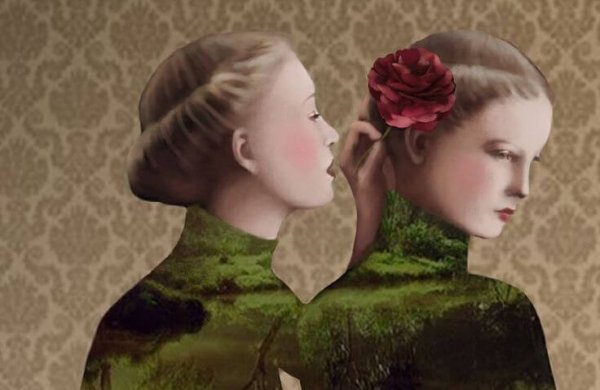I Don't Have Time to Criticize You, I'm Improving My Self-Esteem

Throughout our lives, we often criticize each other, and then feel guilty and upset about it, which is very difficult to run away from. We feel the need to find balance and improve our self-esteem so that we can free ourselves from our inner prison.
Sometimes our problems overwhelm us, but instead of looking to improve our self-esteem, we look to the other side, to whatever makes us believe that the other person is worse than we are. When we criticize others, it’s usually a reflection of what’s going on inside.
But this is a mistake. Running away from our problems like this is selfish and useless. Criticizing others reveals our own frustration and insecurity, among many other things. When we employ malicious criticism, we become toxic. We can cause a lot of harm to other people, even if we’re not aware of it.
Criticism defines the critic, not the criticized

We grow up learning the conventional rules of our society, so we’re used to applauding the things we internalize as good and criticizing or judging the things we perceive as bad. When our behavior crosses the line into “unacceptable” we repress it and feel bad about it.
However, there are people who break that pattern and live their lives without censoring themselves and follow their own path. This is what makes them happy. It’s easy for someone who censors their own life to criticize and judge people who don’t do so, but the person they really have a problem with is themselves. Criticism defines the critic, not the criticized.
Our interior is reflected in the way we treat other people, whether we want it to be or not. If we feel unhappy and believe it’s in our hands to change the situation, we’re obligated to do so. But rejection, insults, and slurs against other people lead only to our own emotional emptiness.
“There is overwhelming evidence that the higher the level of self-esteem, the more likely one will be to treat others with respect, kindness, and generosity.”
– Nathaniel Branden –
The profile of a critic
Here are some common features of people who constantly criticize others:
- Happiness is clearly lacking in their lives. If they feel like they need to judge other people to feel better about themselves, it’s because they don’t have any self-love. Feeling good and balanced is so important in our personal relationships. If you’re not happy with yourself, you can’t make anyone else happy.
- Strangers are their main focus. They tend to direct their criticism towards people they don’t know, or don’t know very well. It’s very easy to do this, because throwing criticism at people close to them can make them feel more guilty and upset.
- They’re usually people who are dependent and insecure. Improving your self-esteem involves feeling more secure about yourself. Critics tend to be insecure and need to immerse other people in their own reality and loneliness.
“Those who dedicate their time to improving themselves have no time to criticize others.”
– Mother Teresa –
Keys to improving self-esteem
Here are some pointers that can help us improve our self-esteem and stop imposing our own inner unhappiness on other people who don’t deserve it:
- Remember your successes and achievements.
- Accept your mistakes without criticizing or judging yourself.
- Don’t seek other people’s approval; seek your own.
- Remind yourself of your values and positive qualities, and make a list if necessary.
- Accept yourself for who you are, what you want to do, and how you feel.
- Overcome the past and learn from your mistakes.

“Self-esteem is the ability to know yourself, accept yourself, and value yourself, which allows you to live a more balanced, happy, harmonious, and productive life.”
– Reny Yagosesky –
This text is provided for informational purposes only and does not replace consultation with a professional. If in doubt, consult your specialist.








